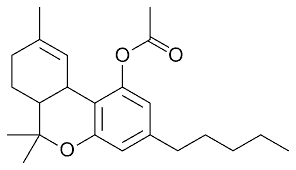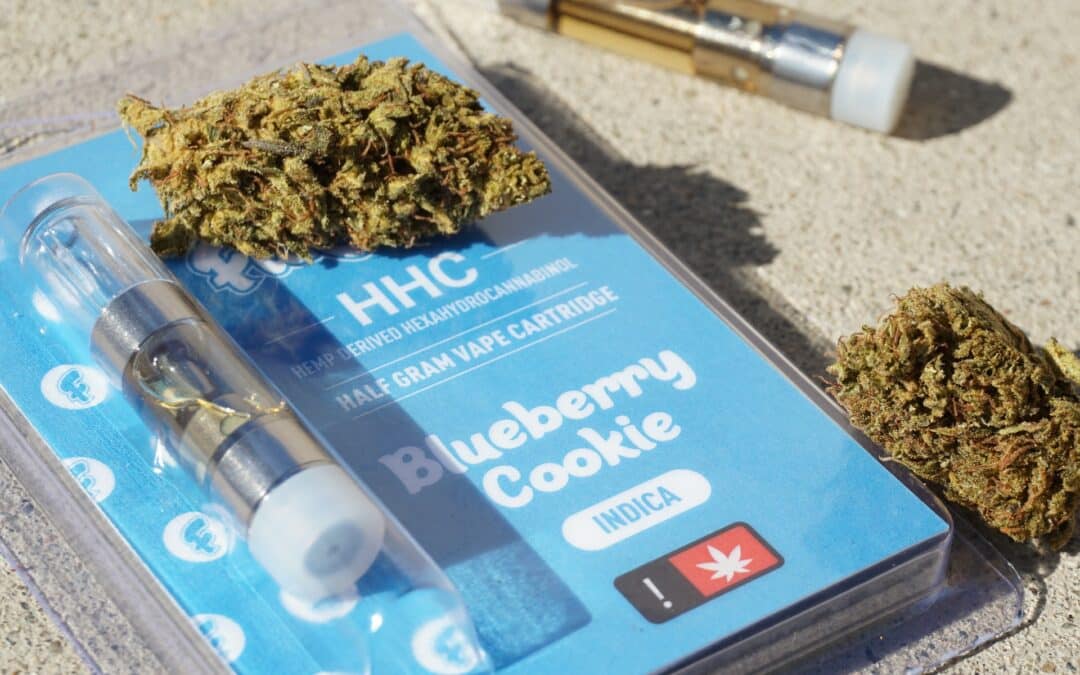
Is HHC Legal? What is HHC
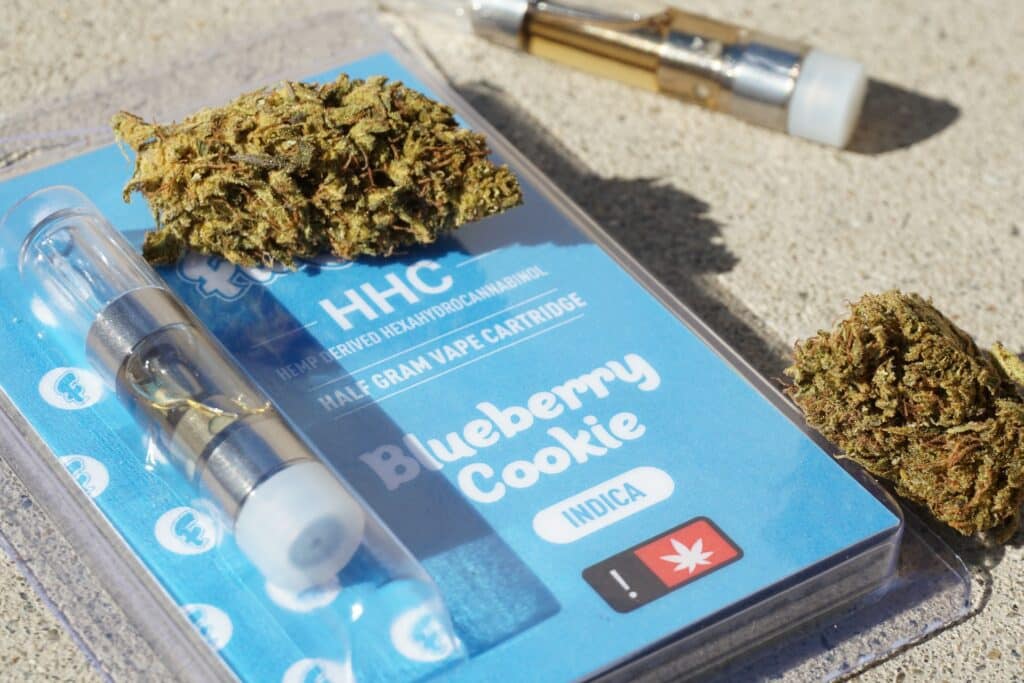
Another day, another THC analog cannabinoid product!
Every few months there seems to be a new THC analog product that gains popularity. It started with Delta 8 and Delta 10. Then we saw THC-O and THCV.
The latest analog to hit the market is HHC. Also known as Hexahydrocannabinol, HHC is a hydrogenated form of THC.
What is HHC?
Like other THC analog products like Delta 8, HHC does not occur naturally in concentrations large enough to be consumed directly. Instead it is made through an extraction process similar to how a margarine manufacturer hardens vegetable oils.
Through hydrogenation, hydrogen atoms are added to the chemical structure of THC using some type of catalyst like nickel or palladium. With the addition of high pressure, the double bond chemical structure of THC breaks down, replacing one half with hydrogen. This preserves the cannabinoid’s potency and effects.
In other words, HHC is made through a chemical process that converts THC, which is also how Delta 8 and other cannabinoids are made.
HHC vs THC
Like Delta 8 and THC-O, HHC is very comparable, though slightly less potent. However users report the same effects as when consuming THC, like euphoria, increased appetite and increased heart rate.
Some HHC users place HHC somewhere in the middle of Delta 8 and Delta 9 THC, claiming HHC is more relaxing than stimulating. Due to its molecular structure, HHC also still holds many of the beneficial aspects of the cannabinoid.
However because HHC is not regulated, there are no reliable studies to confirm any of the effects or potential health benefits.
Is HHC Legal?
Just like other THC analogs like Delta 8 and THC-O, HHC is technically legal due to a loophole in the 2018 Farm Bill which legalized hemp on the federal level. Under federal law, as long as a cannabis plant has a THC content of .3% or less it is considered hemp.
However through extraction and chemical processes like those mentioned above, THC analogs are created from federally legal hemp. And because they aren’t technically Delta 9 THC, they aren’t regulated under the Farm Bill.
So while HHC is legal to buy and consume, it is completely unregulated. With products such as this, it is not uncommon for bad actors to get into the market to make a quick buck without taking into the account the safety of their products and consumers.
Where to find HHC
Because HHC is not a licensed THC product, you won’t see it a legal medical or recreational cannabis dispensary. You are most likely to find HHC products at gas stations and smoke shops where you see Delta 8 and other analog products.
When shopping for HHC or any other analog THC product, do a little research on the product before purchase. Confirm that the brand actually has a website. See if they offer lab test analyses of their products which can confirm the potency that they claim.
If you see any product that is branded as a name-brand knockoff like Skittles, Sour Patch Kids, Oreos, Chips Ahoy, etc., avoid it. Aside from the obvious legal implications of stealing a company’s trademark, these products are in most cases not legitimate. They count on consumers seeing a brand they recognize and thinking it looks cool to sell plain gummies with nothing in them, or vastly misrepresented potencies.
Next time you hear someone asking “what is HHC?”, now you’ll have the answer! Always be careful when buying any sort of “cannabis products” from a non-licensed retailer.
In several state where cannabis is already legal medically, recreationally or both, THC analogs like Delta 8 THC have already been banned. Other states have chose to regulate them like Delta 9 THC and make them available only through licensed retailers.

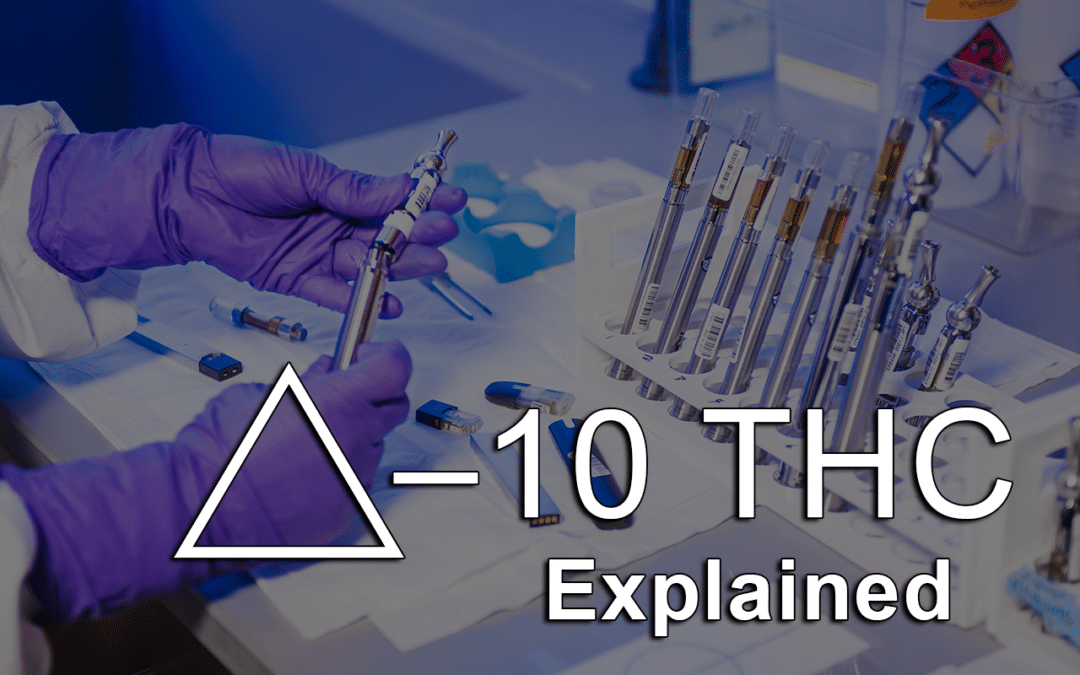
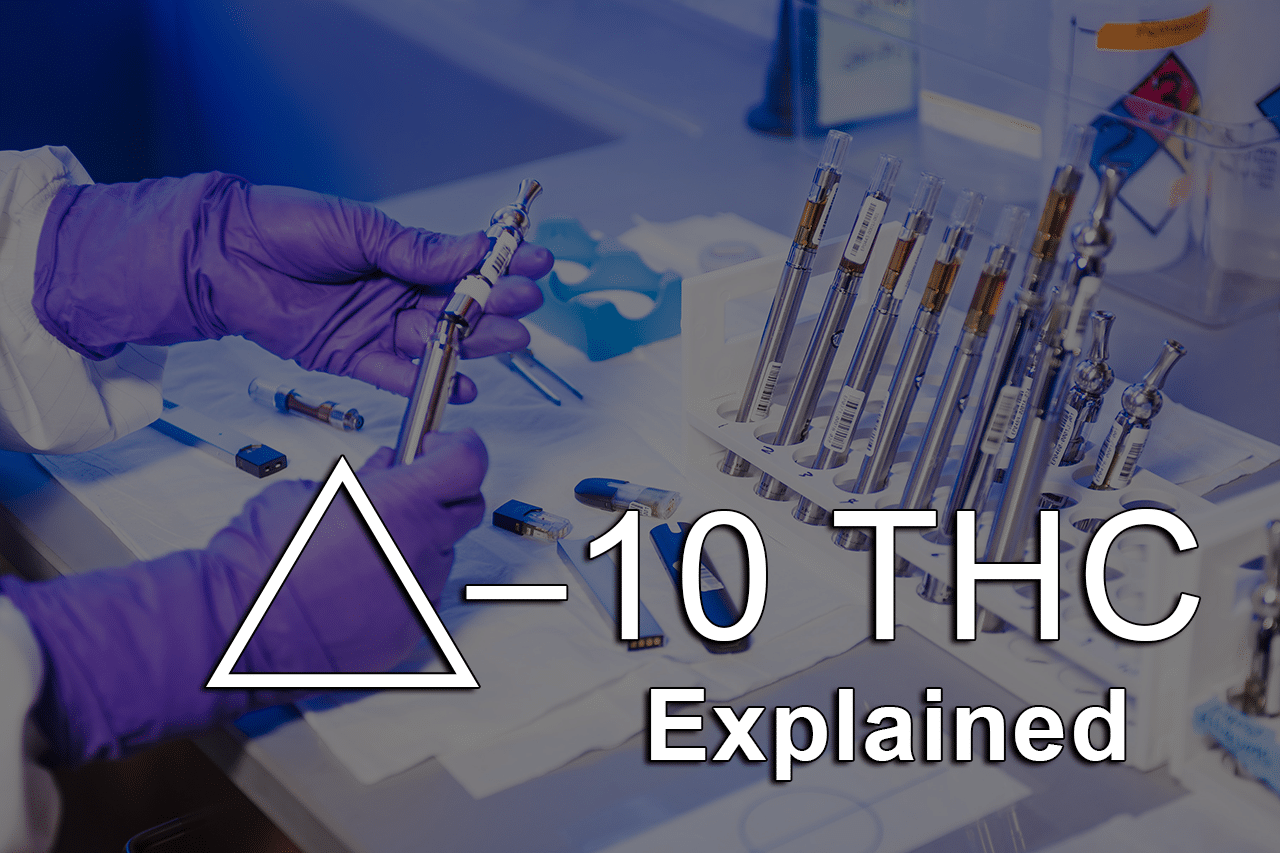
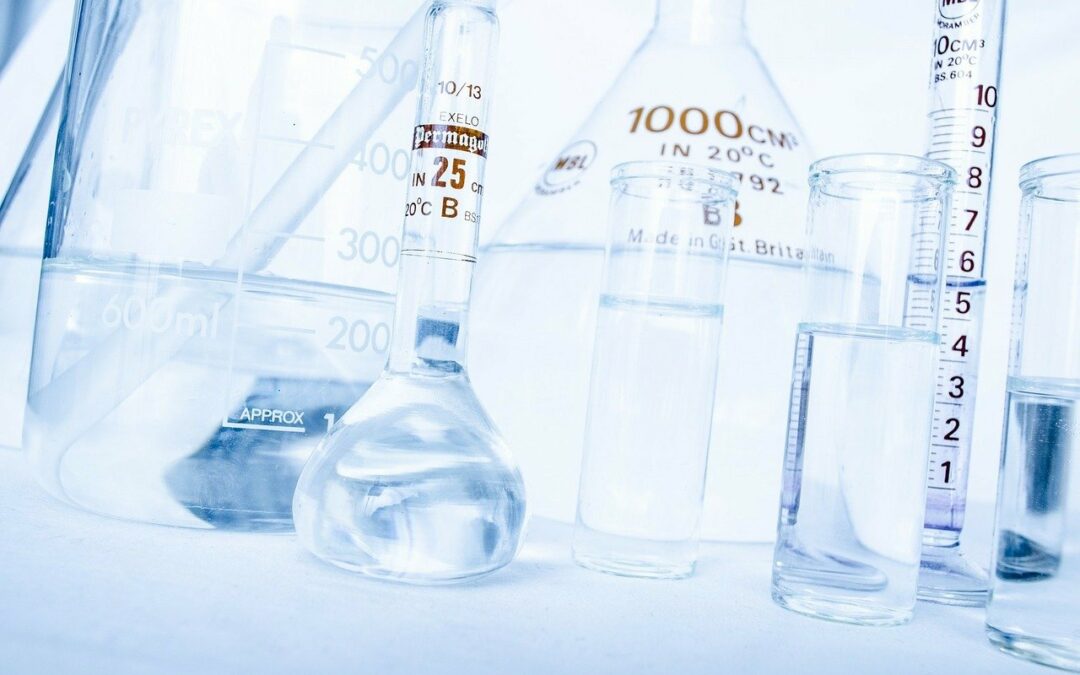
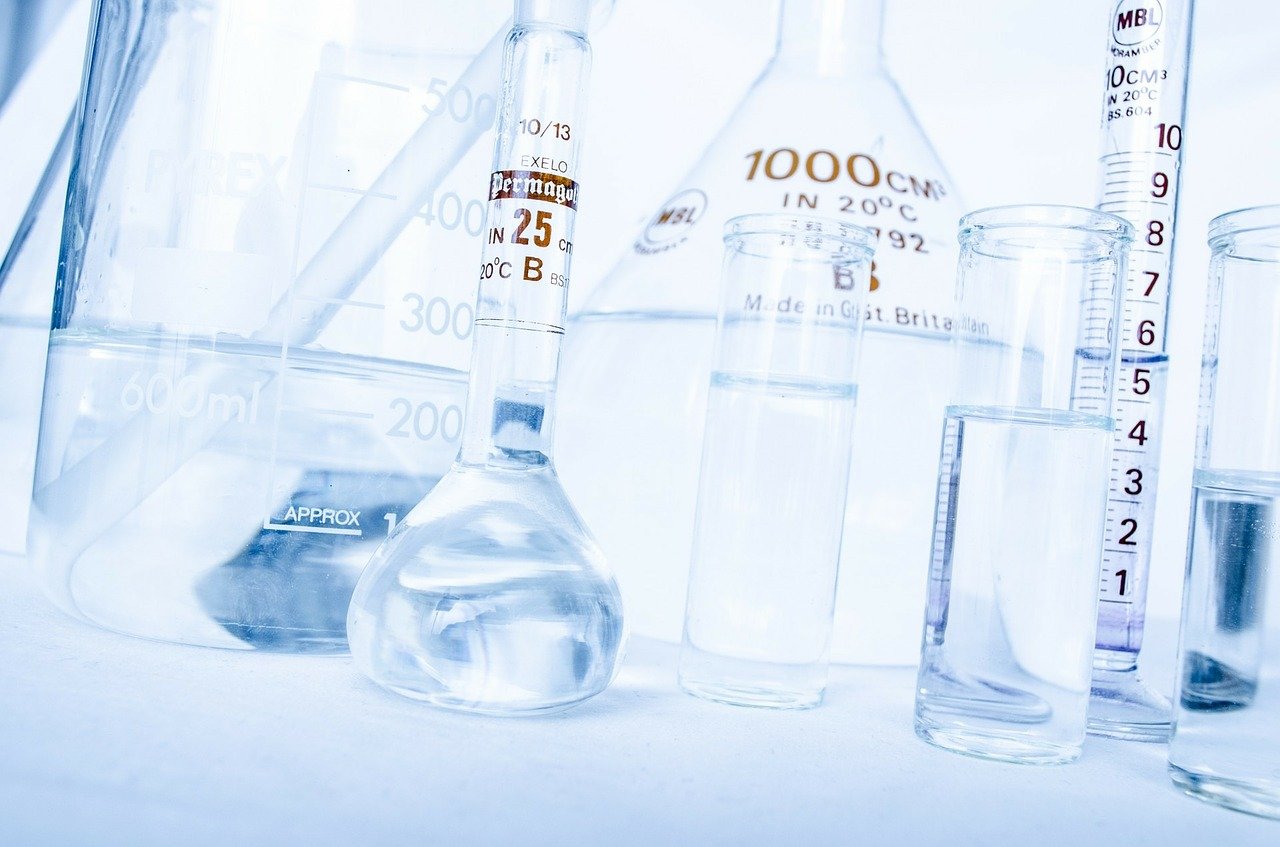
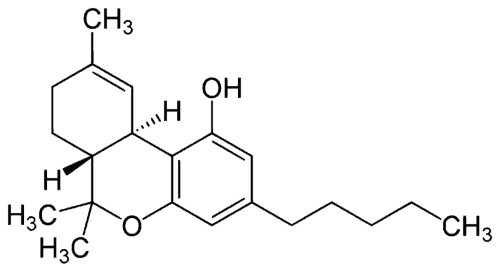 THC-O Acetate Molecule:
THC-O Acetate Molecule: